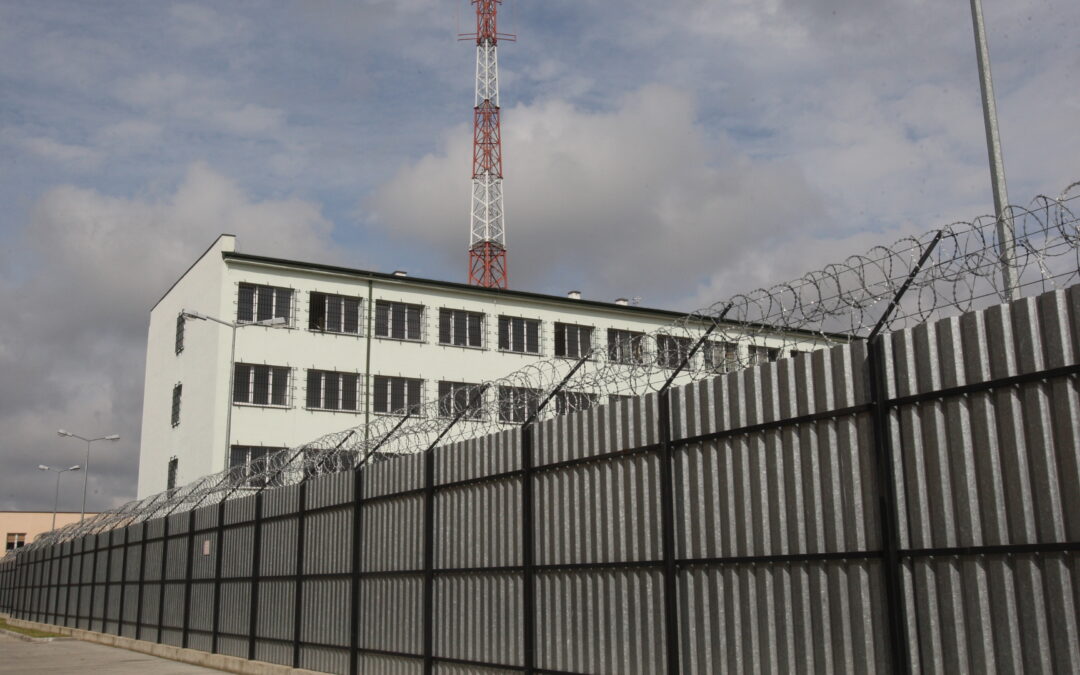Dozens of people being held in a detention centre for migrants and refugees who have recently crossed the border from Belarus have joined a protest against conditions they describe as being like in prison. Around half of those being held at the facility are reportedly children.
The participants, mostly Iraqis, say they are mounting a “hunger protest” by refusing food. But Poland’s border guard, while acknowledging that the protest is taking place, says that those taking part are actually receiving food in their rooms from other detainees.
Strajk głodowy Irakijczyków w zamkniętym ośrodku w Białej Podlaskiej https://t.co/C3jSy9qZHX pic.twitter.com/NbuLi47uqb
— NewsweekPolska (@NewsweekPolska) December 13, 2021
Poland has in recent months experienced an unprecedented number of crossings over its border with Belarus, which is also the European Union’s eastern frontier. Tens of thousands of people – mainly from the Middle East – have attempted to enter.
Among those that reach Poland, thousands have clandestinely travelled on to destinations in western Europe, such as Germany. But those caught by the Polish authorities are either pushed back over the border or taken to be held in so-called “centres for foreigners”.
Among the 160 people currently being held at a such a centre in the eastern town of Biała Podlaska, between 60 and 80 have since Sunday been protesting by refusing to come to the canteen for meals.
“We want to get our phones back, buy gifts for the kids for the holidays, not stay in prison here. Because it simply is a prison,” said one of the detainees, who managed to speak by phone with broadcaster TVN24, which also reports that around half the people held at the facility are children.
“Where is the freedom they talk about? Where are the human rights they talk about?” he asked. “If they do not want to let us go, let them fulfil our demands.”
In August, the centre was converted from an open facility into a guarded one to house mainly people from Iraq and Afghanistan who were crossing the Belarus border.
While participants have called it a “hunger protest”, a spokeswoman for the border guard, Anna Michalska, disputed that description. “The migrants are not eating in the canteen, but the others take meals to them,” she said, quoted by Gazeta.pl.
Another spokesman, Dariusz Sienicki, told Polsat News that some of the detainees also have kitchens and fridges in their rooms. “Just because someone doesn’t come down for a meal doesn’t mean they don’t eat anything at all,” he said.
He noted that those held at the detention centre are being provided with appropriate care, including medical treatment and psychological care.
Sienicki also said that the protesters’ demand to be released from the centre was impossible to meet as “they were placed there by a court decision and have to wait for a decision” on their status. He noted that most are Iraqi citizens awaiting decisions on asylum requests.
A spokesman for Poland’s Office for Foreigners, Jakub Dudziak, told Polsat that such applications usually take up to six months to process, but can last up to 15 months in complex cases.
Last month, a riot broke out at another migrant holding centre in Poland. A group of around 100 men demanded to be released, given better conditions, sent on to Germany, or returned to Iraq.
Main image credit: IWONA BURDZANOWSKA / AGENCJA GAZETA

Daniel Tilles is editor-in-chief of Notes from Poland. He has written on Polish affairs for a wide range of publications, including Foreign Policy, POLITICO Europe, EUobserver and Dziennik Gazeta Prawna.




















